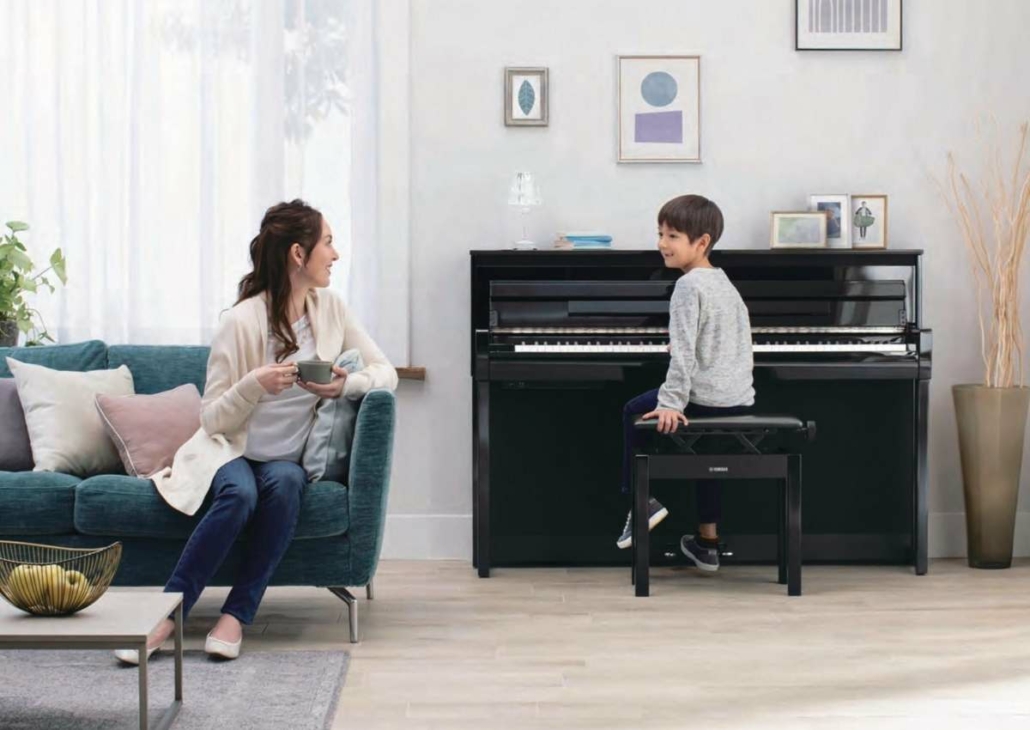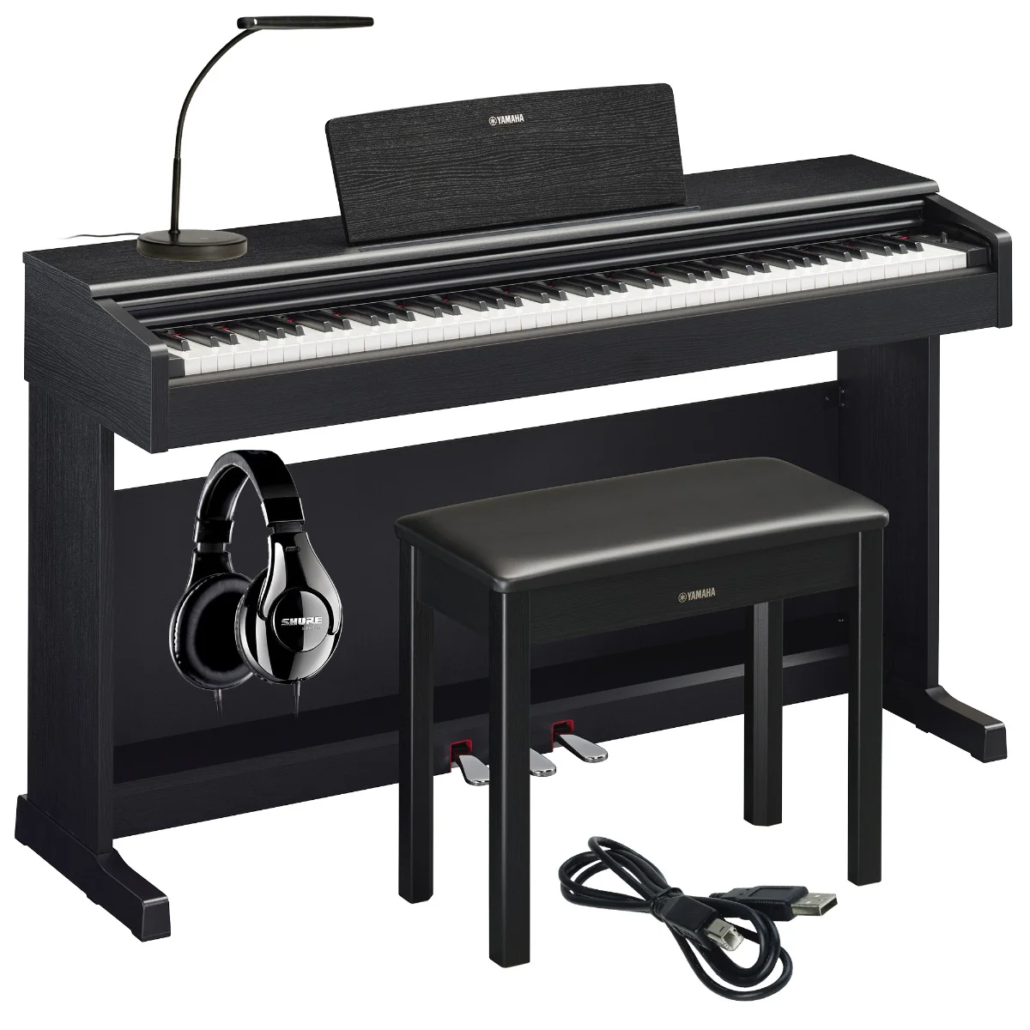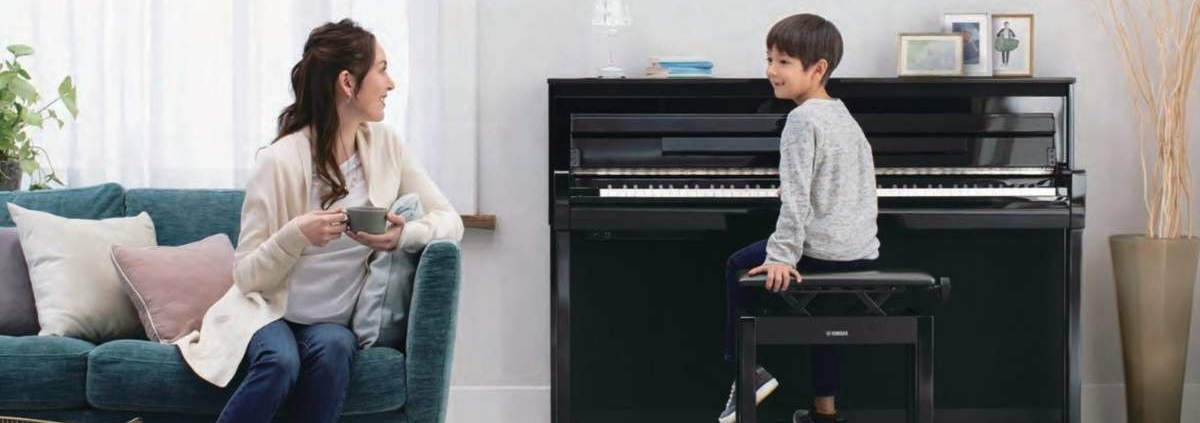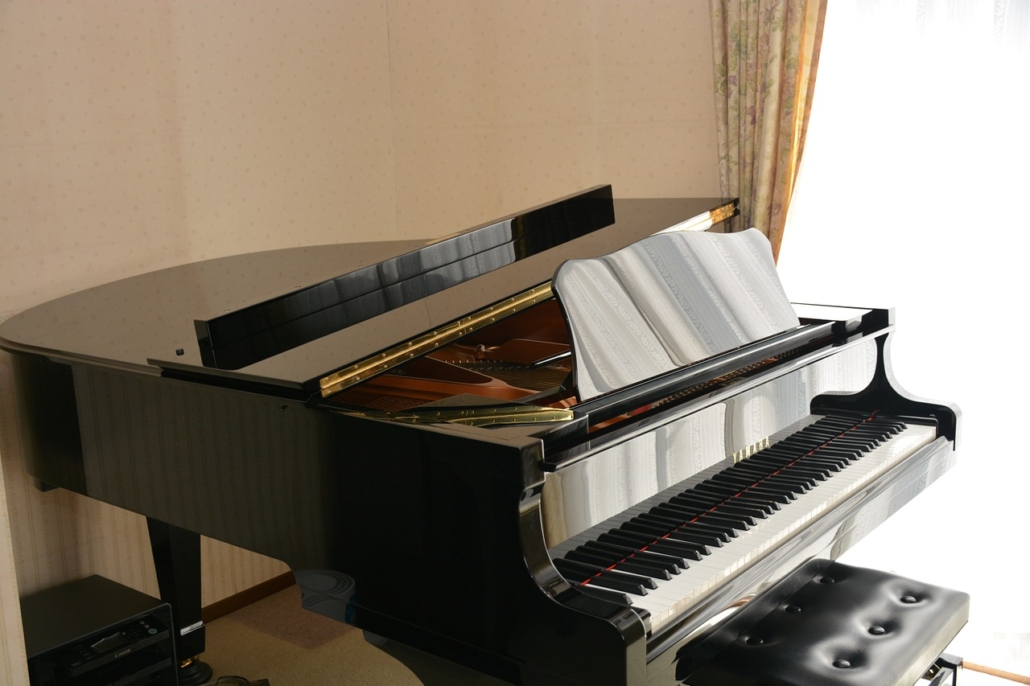Acoustic Piano vs Digital Piano – Which Choices Are For You?
The majority of experts still believe that acoustic pianos offer the best performance and playability. But for many people who are just beginning their piano journey, digital pianos have emerged as a competitive option to acoustic pianos thanks to speedier processors and more realistic key movements. Similar to the debate over new versus used pianos, there is never a clear-cut “right answer” since each acoustic piano vs digital piano has advantages and disadvantages of its own. Let’s find out all the information you need to know about digital piano or acoustic!
See More :
- Top Piano Notes Sheet for Beginners
- Best Piano of All Time
- How Can I Play Piano?
- Top 10 Best Pianos for Beginners
- Top 5 Yamaha Digital Piano Grand Models You Must Try
How’s the difference between acoustic piano and digital piano?
The sound is by far the most noticeable distinction between acoustic piano vs digital piano. The best digital pianos available now have greatly improved sampling technology, making them sound extremely similar to acoustic pianos. But even with the most sophisticated, top-notch digital pianos, you’ll be able to tell that it’s not the genuine thing.

On a soundboard, more than 200 strings vibrate to produce the sound of an acoustic piano. In contrast, a digital piano mimics that intricate method of creating music. A digital replica could not sound as realistic as an acoustic piano because of this technique.
Conversely, an acoustic piano can only produce the sound of an acoustic piano. One of the many features of a digital piano is usually the selection of numerous sound samples. Play the organ or the harpsichord? A digital piano is a one-stop shop.
Nothing compares to the sound of a real acoustic piano if you’re searching for the best acoustic piano sound. However, a digital piano is your best option if you’re looking for something that sounds a lot like an acoustic piano and also has a range of sounds to play.
Acoustic piano vs digital piano – The touch and sensation
Another crucial consideration when comparing acoustic piano vs digital piano is touch and sensation. The difference between studying on an acoustic piano and an unweighted keyboard can be very apparent, especially if you are just starting out. The feel of piano keys is quite different.
Still, advancements in digital piano technology are ongoing. Graded hammer action weighted keys are a feature of many high-end keyboards. This implies that, similar to an acoustic piano, the lower keys will seem heavier and the higher keys lighter. Certain digital pianos even feature wooden or imitation ivory keys, just like an acoustic piano.
Even while a weighted keyboard can mimic actual piano keys quite a bit, playing a digital piano is still very different from playing an acoustic piano.
What are the advantages of acoustic piano vs digital piano?
From the above comparison, we know that you surely know which piano should be chosen. So here are more about the digital vs acoustic piano’s advantages and disadvantages.
Advantages of acoustic piano:
- Longevity: Without a doubt, acoustic pianos dominate this group. While the best digital pianos will be put to the test to attain such a service life, even a basic acoustic piano will continue to provide dependable service for more than 20 years.
- Resale value: This is directly related to longevity, as acoustic pianos have the ability to command high prices when resold even after ten to fifteen years of ownership. Consequently, a lot of dealers will provide trade-in options for their acoustic pianos.
- Response and dynamic range: Acoustic pianos may still play softer, louder, and faster than digital pianos, even with advancements in sensor technology and tone generation. Most novices, nevertheless, are not likely to identify this as a significant contributing element.
- Aesthetics: A new grand piano certainly looks fantastic in an opulent setting, regardless of one’s particular taste.
Advantages of digital piano:
- Cost: Digital pianos might make it easier for beginners or those on a tight budget to acquire their first piano because they are typically less expensive than acoustics.
- Portability: As digital pianos get smaller, lighter, and more compact, they’re a great option for musicians who have to move their instruments around a lot.
- Climate: A digital piano is frequently a far better option than an acoustic piano if the instrument will be utilized in an environment where humidity and temperature are practically impossible to control.
- Sound control: A lot of pianists nowadays reside in apartments, townhomes, and smaller homes where acoustic pianos are sometimes unsuitable because of noise complaints from neighbors or family members. With digital pianos, musicians can easily enjoy their music in private while donning headphones.
- Features: As software and electronics are present in everything we touch, more individuals are experimenting with connecting smart gadgets to their instruments. You can write, record, share, promote, and explore with millions of people (or other musicians) online thanks to the countless alternatives accessible.

Acoustic piano vs digital piano – Personal preferences and habits influence guitar choice.
Your individual tastes and playing habits are important considerations when deciding between a digital piano vs acoustic piano. There are many differences between acoustic piano and digital piano such as advantages, it will surely depend on your taste in music, your degree of skill, and your practice space. These are some things to think about while choosing a piano to purchase.
Music Genre
It is better for beginning classical musicians to use an acoustic piano. First of all, classical music is better suited to the sound of an acoustic piano. Secondly, you can play the strength and nuanced musical emotions needed for classical music with the touch of an acoustic piano.
A digital piano is a superior option for anyone who wants to experiment with Pop, Rock, or Funk. You’ll enjoy playing more with a digital piano’s contemporary features, such as the instrument tones. These genres can also benefit from a digital piano’s “digital” sound color.
Skill Level
For novices, especially those who are self-taught, a digital piano is preferable. A computer and a digital piano can be connected to create endless educational possibilities. You can pair your phone and computer with your digital piano to use a range of learning applications. Even built-in learning apps are available with some digital pianos.
Practice Location and Time
Consider purchasing a digital piano if you practice at night or at home while family members aren’t around. With its volume controls and headphone port, you may practice by yourself with no one else listening except yourself.
Conclusion.
The difference between acoustic piano and digital piano are contrasted in our article, along with a discussion of how your own preferences and playing style will influence your choice of piano. Are you prepared to decide on something now? You can learn more on our website, but avoid overthinking, as this will impede your progress as a musician!
Copy by : pianosintheparks.com





Leave a Reply
Want to join the discussion?Feel free to contribute!